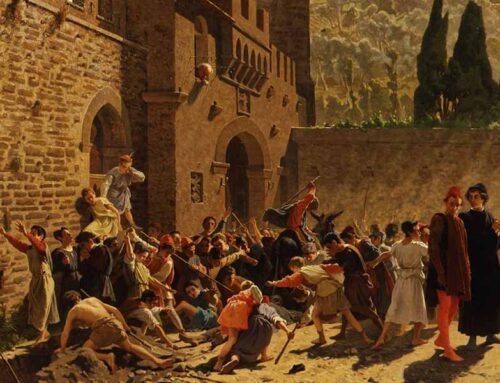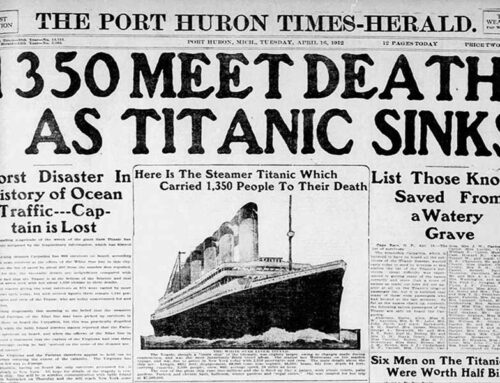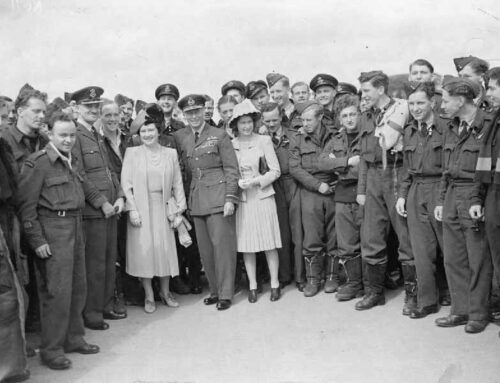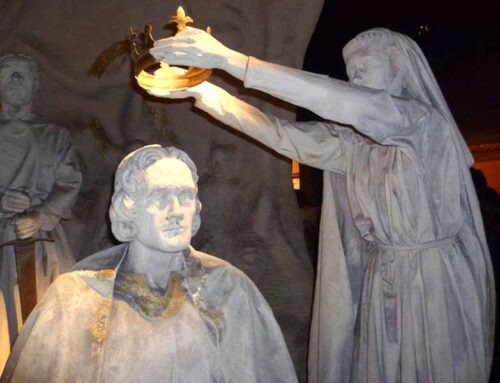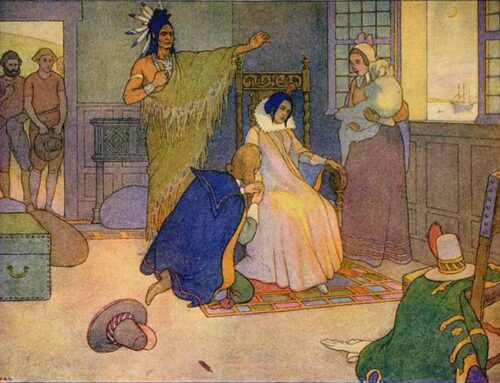
“The education of young citizens ought to form them to good manners, to accustom them to labor, to inspire them with a love of order, and to impress them with respect for lawful authority. Religion is the only solid basis of good morals; therefore education should teach the precepts of religion, and the duties of man towards God.” —Gouverneur Morris
American Statesman Gouverneur Morris Is Born,
January 31, 1752
 riter of the preamble to our constitution, leading patriot of our revolution, esteemed member of the Continental Congress, wartime minister of the Treasury and American Ambassador—to name only a few of his notable stations—Gouverneur Morris is one of our forgotten founding fathers.
riter of the preamble to our constitution, leading patriot of our revolution, esteemed member of the Continental Congress, wartime minister of the Treasury and American Ambassador—to name only a few of his notable stations—Gouverneur Morris is one of our forgotten founding fathers.

Gouverneur Morris (1752-1816)
Born in New York City at Morrisania Manor house to prosperous and staunchly Tory parents, Morris came from Huguenot and Welsh stock. Although derisively labeled an “aristocrat” by many patriots during the Revolution and a traitor by his old social circle, Morris became convinced of the cause of independence and used his own genius and experience to warn of power imbalances in the Congress and Senate until his death. A colorful figure of great stature and personality—in no way impeded by the necessity of a peg leg to replace a tragically crushed limb—Morris swam in the inner circle of our nation’s founding nexus until his last days, and was both witness to and actor in some of its greatest scenes.
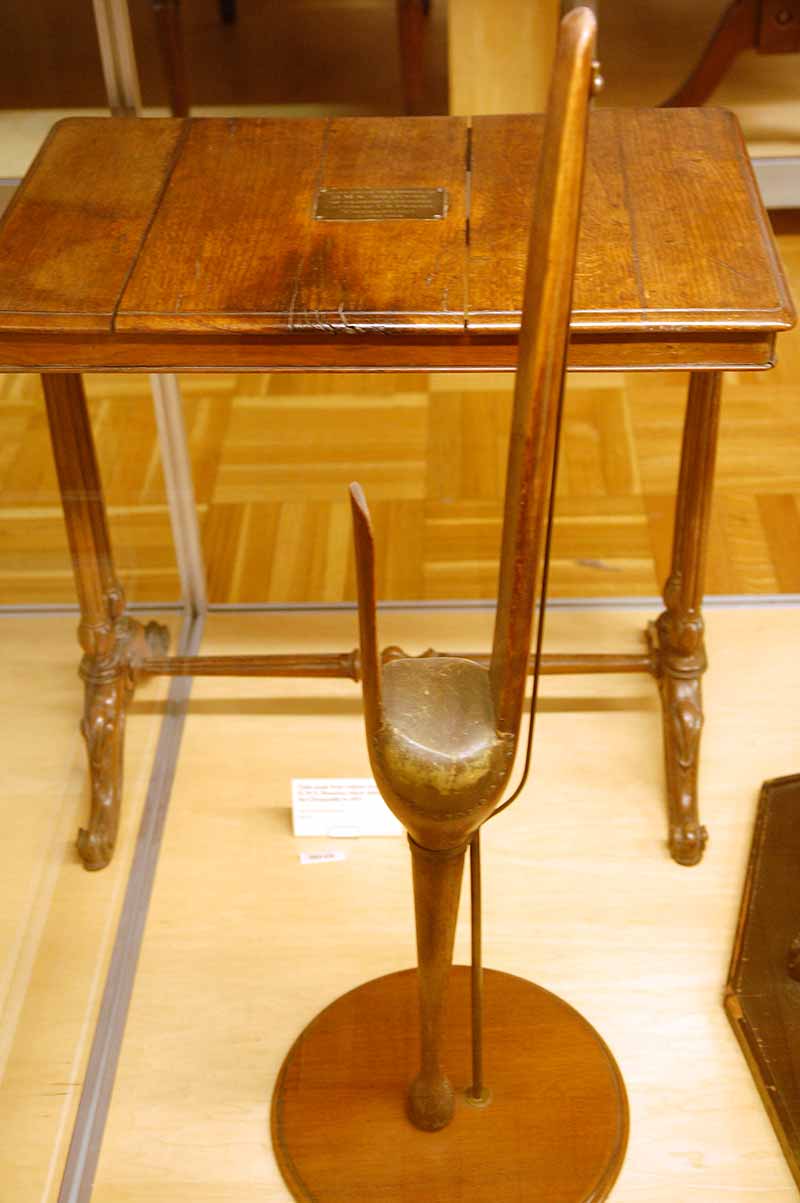
Morris’ wooden leg
There is no more frank telling of our revolution and the days of our establishment than can be found in Morris’ often terse, sometimes exhaustive, but always witty journals. Added to that are the extensive archives of his correspondence, much of which sheds light on dire national struggles as well as the intimate friendships and rivalries that comprised the motley network of soldiers, statesmen and foreign nobles who were instrumental in America’s founding.
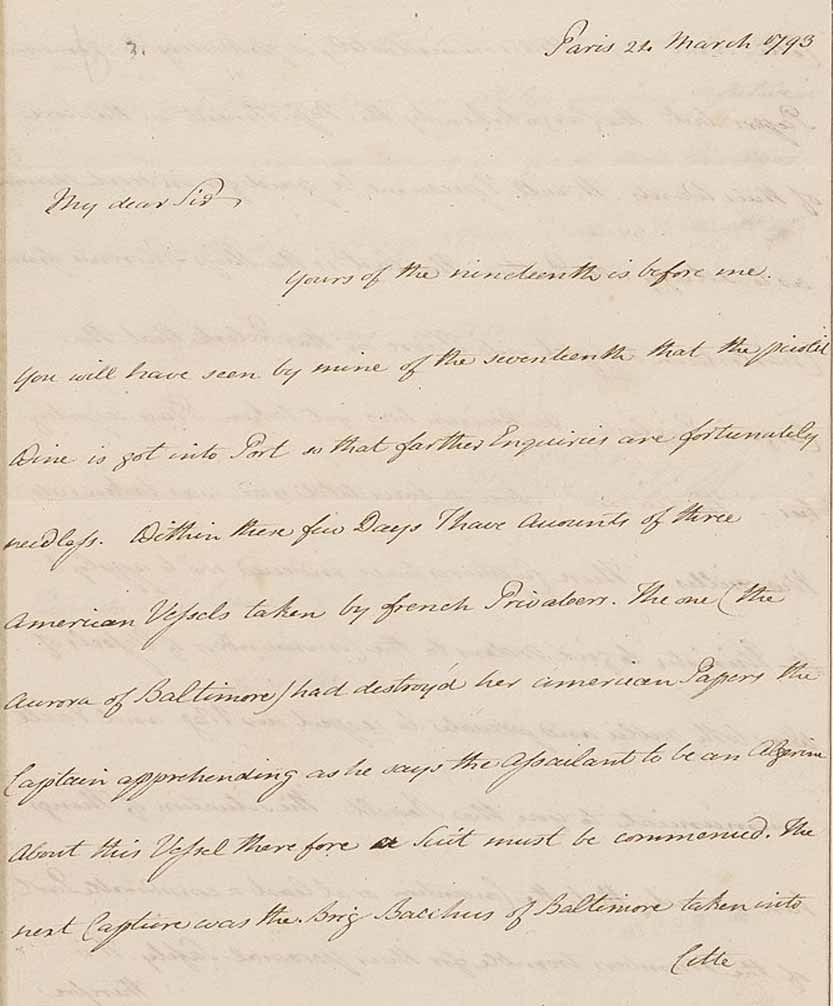
The opening page of a letter from Morris to Thomas Pinckney
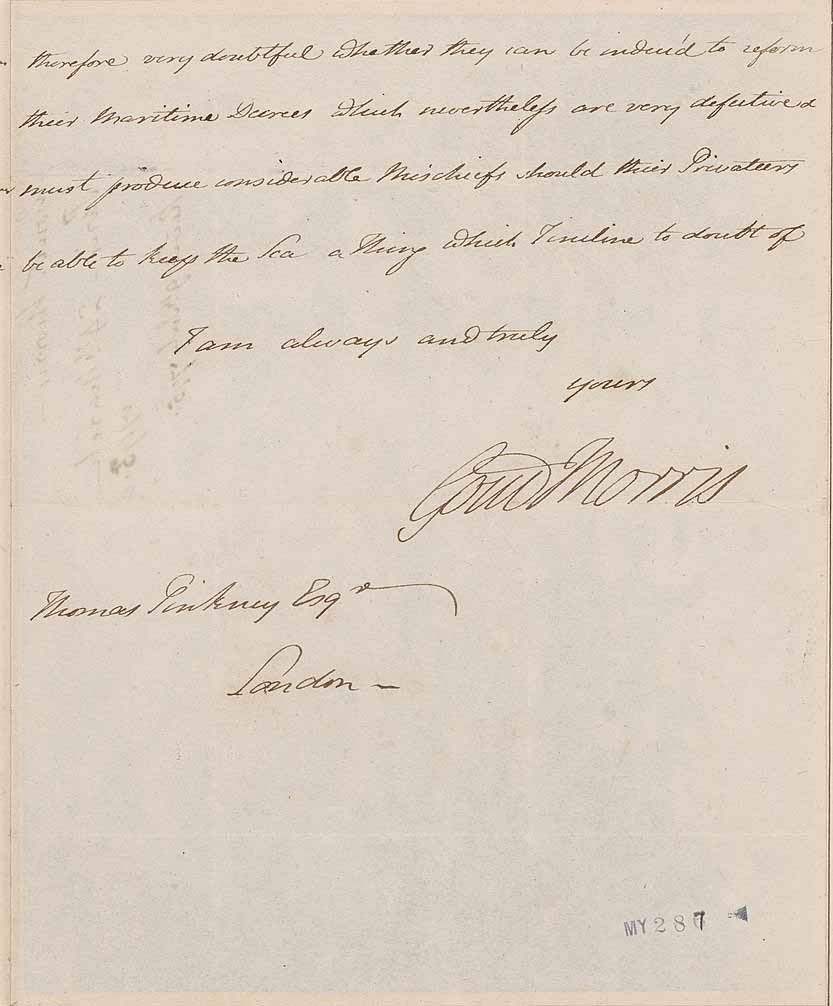
The closing page of a letter from Morris to Thomas Pinckney
His decline in popularity was a result of both personal antagonism to any form of diplomacy which might endear him to chroniclers, and the purposeful besmirching of his character by political opponents. The latter reached new heights during the vicious fractioning of the Republican and Federalist parties in the 1790s. But perhaps it is best explained by one of his contemporaries, John Jay, who wrote of him:
“Honor obliges me to say that he deserves well of New York and America in general. Yet it has been the uniform policy of some from the beginning of the contest to depreciate every man of worth and abilities who refused to draw in their harness.”
In his own words Morris freely admitted, “I am not a cautious man and zeal always gets the better of Prudence.” Yet still his momentous contributions to our country, driven by that very same zeal, are undeniable and often cost him dearly. His pen wrote not only our preamble but also the final draft of our Constitution. He was called upon by James Madison to exert the full extent of his prodigious vocabulary in prettifying the document, as it was deemed essential for the wording to be not only binding and accurate but also inspiring.
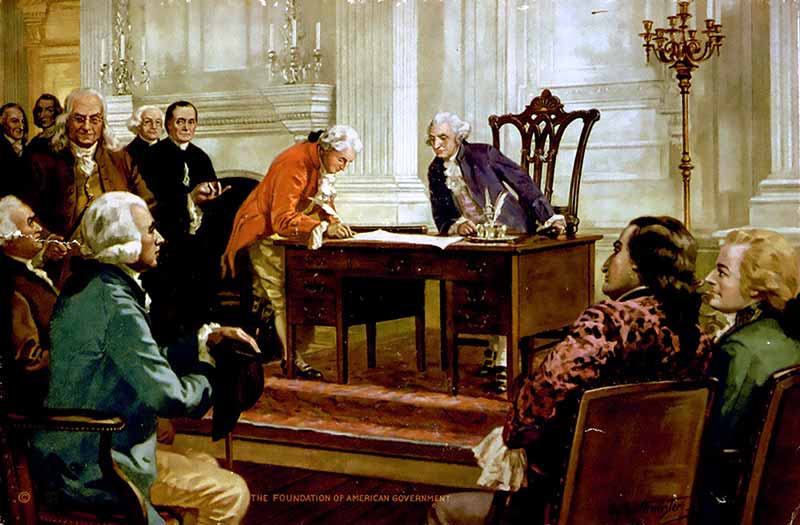
Gouverneur Morris signs the Constitution in the 1925 painting, Foundation of the American Government
He was present at the deathbed of Alexander Hamilton after his duel with Vice President Aaron Burr, and wrote movingly of Mrs. Hamilton and the children’s despair. He also wrote and delivered the eulogy for his controversial friend:
“Far from attempting to excite your emotions, I must try to repress my own, and yet I fear that instead of the language of a public speaker, you will hear only the lamentations of a bewailing friend. But I will struggle with my bursting heart, to pourtray that Heroic Spirit, which has flown to the mansions of bliss…”
He was required by President Washington at the height of the French Revolution to abandon his personal pursuits in France and replace William Short as American ambassador there. Morris was crucial in establishing precedent for sanctuary and asylum at his embassy where many of America’s French allies flocked at the height of the Terror. Despite the daily threats to his life by Robespierre’s Committee of Public Safety and the abandonment of almost all other diplomatic envoys, Morris doggedly remained at his post through the worst of it. He wrote to Congress begging for clearer direction regarding his assignment and confirming his dedication to it:

Bust of Gouverneur Morris, from a life mask taken June 6, 1792
“I presume that when the President did me the honor of naming me to this embassy, it was not for my personal pleasure or safety, but to promote the interests of my country. These, therefore, I shall continue to pursue to the best of my judgment, and as to consequences, they are in the hand of God.”
These are only a fraction of the events Gouverneur Morris took part in. His ardent appeals against slavery, his prophetic warnings regarding the impending war of 1812, and his work on the Erie Canal all deserve note and further discussion.
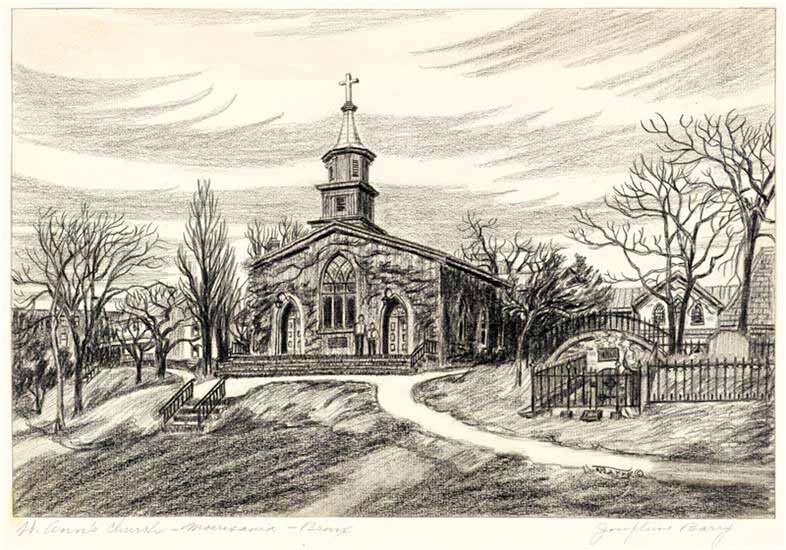
The final resting place of Gouverneur Morris—St. Ann’s Church, Bronx, New York, built by his son, Gouverneur Morris, Jr.
For now I will leave you with this testament to his character written by another great American, Theodore Roosevelt, who found Morris worthy of a place in his compiled Hero Tales.
“There has never been an American statesman of keener intellect or more brilliant genius. Had he possessed but a little more steadiness and self-control he would have stood among the two or three very foremost. He was gallant and fearless. He was absolutely upright and truthful; the least suggestion of falsehood was abhorrent to him. His extreme, aggressive frankness, joined to a certain imperiousness of disposition, made it difficult for him to get along well with many of them with whom he was thrown in contact. In politics he was too much of a free lance ever to stand very high as a leader. He was very generous and hospitable; he was witty and humorous, a charming companion, and extremely fond of good living. He was strictly just; and he made war on all traits that displeased him, especially meanness and hypocrisy. He represented better than any other man the clear-headed, practical statesman, who is genuinely devoted to the cause of constitutional freedom. He was essentially a strong man, and he was an American through and through.”
Image Credits: 1 Gouverneur Morris (wikipedia.org) 2 Wooden leg (wikipedia.org) 3 Letter, page 1 (wikipedia.org) 4 Letter, page 2 (wikipedia.org) 5 Foundation of the American Government painting (wikipedia.org) 6 Bust (wikipedia.org) 7 St. Ann’s Episcopal Church (stannssouthbronx.wordpress.com/history)


